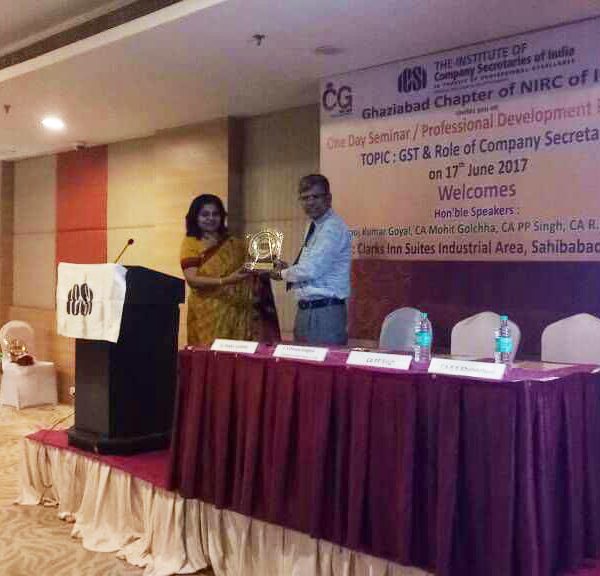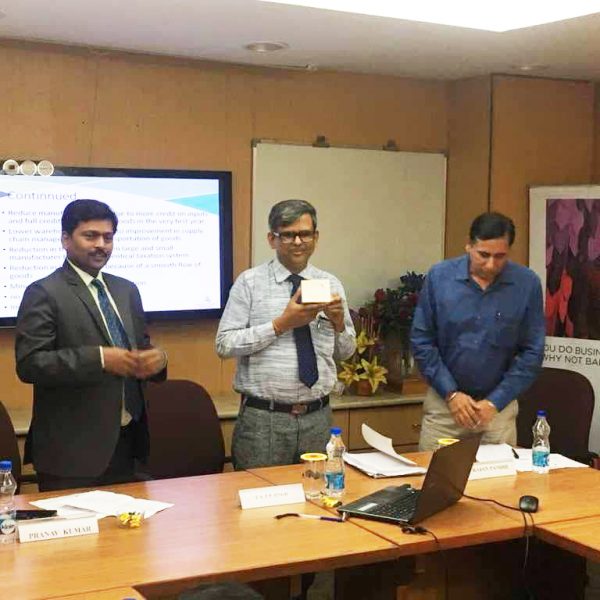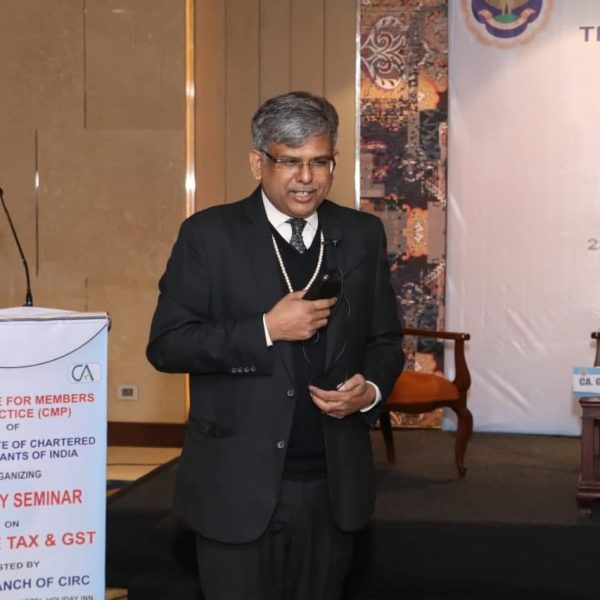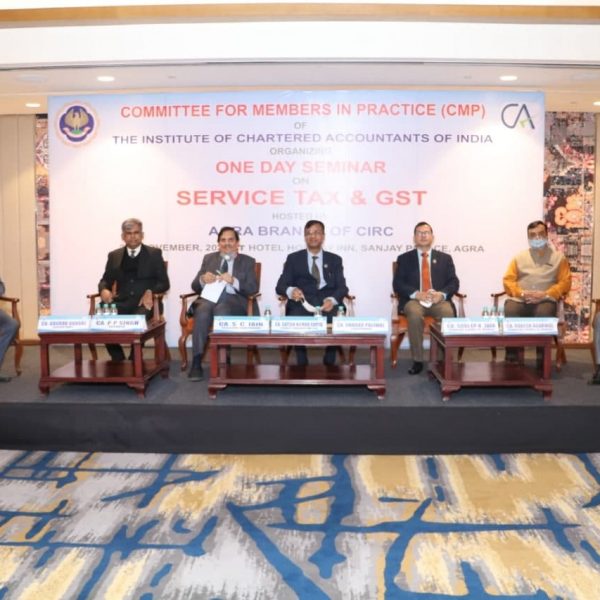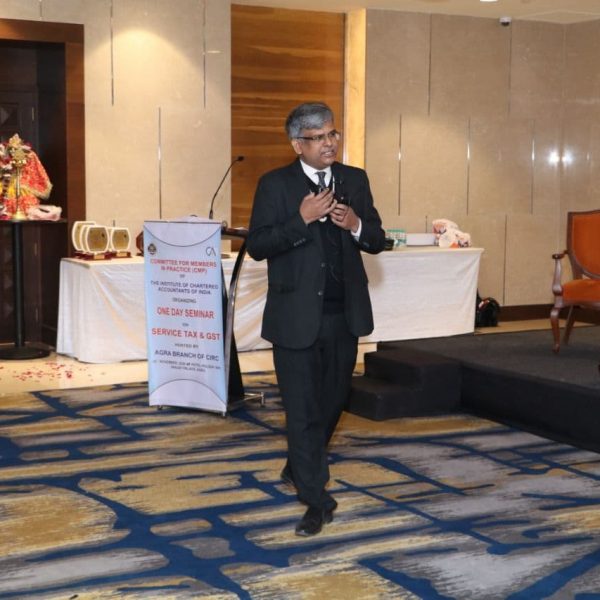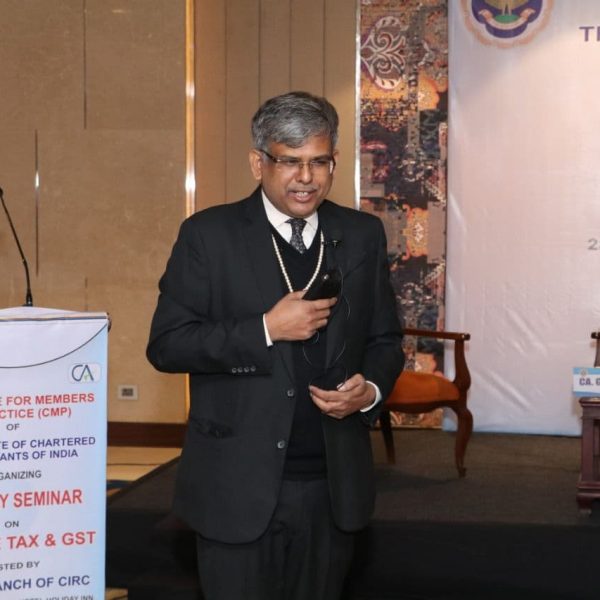Amendment in the trust deed or changes in the board of trustees as per court order
introduction: The amendment in the trust deed required an understanding of provisions of various laws such as the Indian Trust Act 1882, civil procedure code, specific relief act, income tax Act, and most importantly the original trust deed and the intent of settlor/founder of the trust. effort has been made to explain the provisions of law related to that.similarly change in trustee could be made through court intervention.
power of amendments in the trust deed:
The power to amend the trust deed shall be limited to the extent provided in the trust deed itself. So, drafting of trust deed becomes very important and suitable clauses must be there in the trust deed empowering amendments in the trust deed for future needs of changes and contingencies.
- If there are provisions in the original trust deed empowering amendment in the trust deed then following those provisions of the trust deed amendment could be made but amendment or alteration in the trust deed has a limitation, explained in the following paragraphs.
- if there is no provision in the trust deed enabling for amendment in the trust deed, how trust deed be amended? we have to approach the civil court for interpretation of the trust deed with proposed changes according to and consistent with true intent to the motive of settlor creating trust and reason for changes as mentioned in section 92 of the CPC read with section 26 of the specific relief Act.
Approach civil court for guidance on managing Trust property: The Hon’ble Supreme Court noted in the case of CIT v. Kamla Town Trust(1996)(SC), that Section 34 of the Indian Trust Act, 1882 is not applicable as far as the alteration of the Trust deed is concerned. Section 34 of the Indian Trust Act of 1882 gives the option to ask The Honourable Court for guidance on managing Trust property. The apex court was of the opinion that section 34 could not be used to change the deed and objects because it was only intended to be used for the management or administration of the trust property. Additionally, it was noted that section 26 of the Specific Relief Act of 1963 was the appropriate legal provision under which a request for a trust deed alteration could be submitted if any portion of the trust deed does not express real intention.
Extract of section 34 of the Indian trust act 1882 reproduced hereunder
“Right to apply to Court for opinion in management of trust-property.
- Any trustee may, without instituting a suit, apply by petition to a principal Civil Court of original jurisdiction for its opinion, advice, or direction on any present questions respecting the management or administration of the trust property other than questions of detail, difficulty or importance, not proper in the opinion of the Court for summary disposal.
A copy of such petition shall be served upon, and the hearing thereof may be attended by, such of the persons interested in the application as the Court thinks fit.
The trustee stating in good faith the facts in such petition and acting upon the opinion, advice, or direction given by the Court shall be deemed, so far as regards his own responsibility, to have discharged his duty as such trustee in the subject matter of the application.
The costs of every application under this section shall be in the discretion of the Court to which it is made.”
Extract of section 26 of the Specific Relief Act of 1963 reproduced hereunder:
“When instrument may be rectified
- (1) When, through fraud or a mutual mistake of the parties, a contract or other instrument in writing (not being the articles of association of a company to which the Companies Act, 1956 (1 of 1956), applies) does not express their real intention, then—
- either party or his representative in interest may institute a suit to have the instrument rectified; or
- the plaintiff may, in any suit in which any right arising under the instrument is in issue, claim in his pleading that the instrument be rectified; or
- a defendant in any such suit as is referred to in clause (b), may, in addition to any other defence open to him, ask for rectification of the instrument.
(2) If, in any suit in which a contract or other instrument is sought to be rectified under sub-section (1), the court finds that the instrument, through fraud or mistake, does not express the real intention of the parties, the court may, in its discretion, direct rectification of the instrument so as to express that intention, so far as this can be done without prejudice to rights acquired by third persons in good faith and for value.
(3) A contract in writing may first be rectified, and then if the party claiming rectification has so prayed in his pleading and the court thinks fit, may be specifically enforced.
(4) No relief for the rectification of an instrument shall be granted to any party under this section unless it has been specifically claimed:
Provided that where a party has not claimed any such relief in his pleading, the court shall, at any stage of the proceeding, allow him to amend the pleading on such terms as may be just for including such claim.
limitations of amendments:
- once a trust is established with specific objects, none of those original objects may be deleted. This was further supported by the Madras High Court in Sakthi Charities v. CIT [1984], which ruled that a deed of rectification that removed some of a trust deed’s original objects was illegal.
- In the landmark decision of the Honble Supreme Court in the matter of CIT v. Palghat Shadi Mahal Trust [2002] (Supreme Court), where a trust was established for the economic, social, and educational advancement of Muslims from lower socioeconomic classes but later on by amendment these objectives were made applicable to all communities, regardless of faith or creed, by a general body resolution. The SC determined that this amendment would be illegal because it reflected a change in the trust deed’s purpose that the settlor had not intended.
- Any deviation from the trust’s declared purposes by the founder or the trustees would only constitute a breach of trust and not affect the validity of the trust’s declaration if it has been legitimately and honestly established. In this regard, the Supreme Court ruling In the Matter of Sri Agasthyar Trust v. CIT [1999] (Supreme Court) is also relevant.
limitations on the settler/founder/trustee:
- We may note that the trustees inherently do not possess any power to amend the trust deed, for that matter even the settlor does not have the power of any subsequent to the creation of the trust.
- High Court of Madras in the matter of Thanthi Trust v. Income Tax Officer [1973] held that if there has already been a complete dedication (total turnover of the property), the founder of the trust’s subsequent activities and conduct cannot damage the trust.
- If an appropriate and complete dedication has been made, the founder would no longer have any authority to revoke it, and no statement made by him or any actions taken by him or his heirs in the future that are inconsistent with the dedication would have any impact on the existence of the trust.
Amendment in the trust deed at civil court direction while interpreting the terms of the trust deed:
- The doctrine of Cy pres: The cy pres doctrine is a legal concept that gives courts the power to interpret the terms of a will, gift, or charitable trust. The Hon’ble Civil Courts have power to direct changes in the trust deed in the spirit of the Doctrine of Cy pres which implies that the original intent of the settlor should not fail. But once a civil court has allowed the amendment, it is not open on the part of the Income Tax Officer or any other person to challenge such rectification.
- The Honourable Supreme Court ruled that a Trust Deed cannot be changed unless it expressly permits so. Approaching the registrar or a Court of law shall only be relevant if a change is legally permissible.
- In the Matter of Supreme Court case CIT v. Kamla Town Trust(1996)(SC), The power to change a trust deed has been granted to a civil court, and the income tax officer has to be notified of such an amendment.
- Hon’ble SC held this amendment to be invalid because it implied alteration in the object of the trust deed which was not contemplated by the settlor.
Limitation of a civil court under section 92 of Civil Procedure Code 1908 ( hereinafter referred to as CPC) :
under S.92 of the Civil Procedure Code, a civil court can give a direction necessary for the administration of any public charitable or religious trust, but, it can only exercise the powers expressly set out thereunder, and by exercising the power U/s 92, it cannot alter the objects of the trust deed except in cases mentioned in section 92 (3) where original purpose can be changed in certain cases such as purpose already fulfilled, the original object can’t be carried out, or object no more charitable under law, more effective use of trust property, etc, . extract of section 92 of the CPC reproduced hereunder
Public charities.
92 . (1) In the case of any alleged breach of any express or constructive trust created for public purposes of a charitable or religious nature, or where the direction of the Court is deemed necessary for the administration of any such trust, the Advocate-General, or two or more persons having an interest in the trust and having obtained the leave of the Court may institute a suit, whether contentious or not, in the principal civil court of original jurisdiction or in any other Court empowered in that behalf by the State Government within the local limits of whose jurisdiction the whole or any part of the subject-matter of the trust is situated to obtain a decree—
(a) removing any trustee;
(b) appointing a new trustee;
(c) vesting any property in a trustee;
(cc) directing a trustee who has been removed or a person who has ceased to be a trustee, to deliver possession of any trust property in his possession to the person entitled to the possession of such property;
(d) directing accounts and inquiries;
(e) declaring what proportion of the trust property or of the interest therein shall be allocated to any particular object of the trust;
(f) authorizing the whole or any part of the trust property to be let, sold, mortgaged, or exchanged;
(g) settling a scheme; or
(h) granting such further or other relief as the nature of the case may require.
(2) Save as provided by the Religious Endowments Act, 1863 (20 of 1863), or by any corresponding law in force in the territories which, immediately before the 1st November 1956, were comprised in Part B States, no suit claiming any of the reliefs specified in sub-section (1) shall be instituted in respect of any such trust as is therein referred to except in conformity with the provisions of that sub-section.
1[(3) The Court may alter the original purposes of an express or constructive trust created for public purposes of a charitable or religious nature and allow the property or income of such trust or any portion thereof to be applied cy pres in one or more of the following circumstances, namely:—
(a) where the original purposes of the trust, in whole or in part,—
(i) have been, as far as may be, fulfilled; or
(ii) cannot be carried out at all, or cannot be carried out according to the directions given in the instrument creating the trust or, where there is no such instrument, according to the spirit of the trust; or
(b) where the original purposes of the trust provide a use for a part only of the property available by virtue of the trust; or
(c) where the property available by virtue of the trust and other property applicable for similar purposes can be more effectively used in conjunction with, and to that end can suitably be made applicable to any other purpose, regard being had to the spirit of the trust and its applicability to common purposes; or
(d) where the original purposes, in whole or in part, were laid down by reference to an area which then was, but has since ceased to be, a unit for such purposes; or
(e) where the original purposes, in whole or in part, have, since they were laid down,—
(i) been adequately provided for by other means, or
(ii) ceased, as being useless or harmful to the community, or
(iii) ceased to be, in law, charitable, or
(iv) ceased in any other way to provide a suitable and effective method of using the property available by virtue of the trust, regard being had to the spirit of the trust.]
1. Inserted by Amendment Act, 1976, w.e.f. 1-2-1977.
In Kamla Town Trust v. CIT [1982](All.), the question debated was whether the Civil Court had the power to rectify the trust deed U/s 92. It was observed that Section 92 nowhere enables the Civil Court to alter or rectify the terms of a trust except Section 92(3) amended later on. It only enables the Civil Court in suitable cases to remove any trustee, appoint a new trustee, vesting any property in a trustee, directing any ex-trustee to deliver possession of the trust property to the person entitled to the possession of such property, directing accounts and enquiries, declaring that portion of the trust property or interest therein shall be allotted to any particular objects of the trust or to settle a scheme. So, The Hon’ble Court has got power to allocate the trust properties to any particular field of the trust. In this case, the Civil Court had deleted from the trust deed certain objects so as to enable the trustees to claim the benefit of exemption under the Income Tax Act, 1961. It was held that section 92 of the Civil Procedure Code was not the appropriate section/statute for amendment of the Trust Deed.
Govt. department or tax department bound by amendment:
Tax Dept or any other authority cannot decline to accept an amended deed only on the ground that they were not made party to such In the Matter of CIT v. Kamla Town Trust [1996] (SC). one of the contentions of the revenue was that the rectification decree of the trust deed was in personam and not in rem to which the revenue was not a party and, So, it was not binding on the income-tax authorities. it is pertinent to note that a judgment in rem is a judgment pronounced on the status of some particular subject or property or thing (as opposed to one pronounced on persons). In the Matter of Trust Deed amendment, Via the rectification orders of the Civil Court is not judgment in rem, still, it is binding in assessment proceedings before the Income Tax Officer and will have to be given effect. It was held that in such proceedings, the order granting rectification of such an instrument of trust would certainly remain relevant. Consequently, Even if the revenue or the Income Tax Officer was not a party to such rectification proceedings, it cannot be said that such rectification orders passed by Civil Courts permitting rectifications of trust deeds under the applicable provisions of the Specific Relief Act could not be relied upon.
Effect of rectification in trust deed on exemption under income tax
In order to determine whether the assessee-trust had qualified for exemption from paying income tax under the relevant laws, the income tax officer must take into account the true scope and ambit of the trust deed as it was provided to him in rectified form as decided in the case of CIT v. Kamla Town Trust [1996] (SC) provided other conditions satisfied.
Effects of supplementary trust deed: supplementary trust bound the existing trustee as well as future trustee both after the amendment is made effective.
In the Matter of Laxmi Narain Lath Trust v. CIT [2000] (Raj. ), the Court decided that a supplementary trust deed that had been approved by the appropriate civil court was legitimate and enforceable against the income tax department.
The Hon’ble court in Laxminarain Lath Trust v. CIT [1988], determined that the supplementary deed bound the trustees who were parties to the said deed as well as future trustees of the assessee-trust and that the trustees of the assessee were no longer permitted to use the trust funds as a result of the supplementary deed so we can say that in view of the supplementary deed it was no longer permissible for the trustees of the assessee to use the trust funds.
Amendment- prospective or retrospective:
The accomplish bench of The Hon’ble Delhi High Court observed in the Matter of Bhriguraj Charity Trust v. CIT [1997] (FB) that any rectification would only have prospective operation and would not affect the assessment years in question, which were prior to the date of the Civil Court’s decision.
note: clarificatory amendment may have a retrospective effect.
Conclusion: effort has been made to explain the complex topic of amendment in the trust deed in a simple way for a better understanding of the provisions in the original trust deed, and the needs of the amendment as well as the effect of the amendment is very important.

